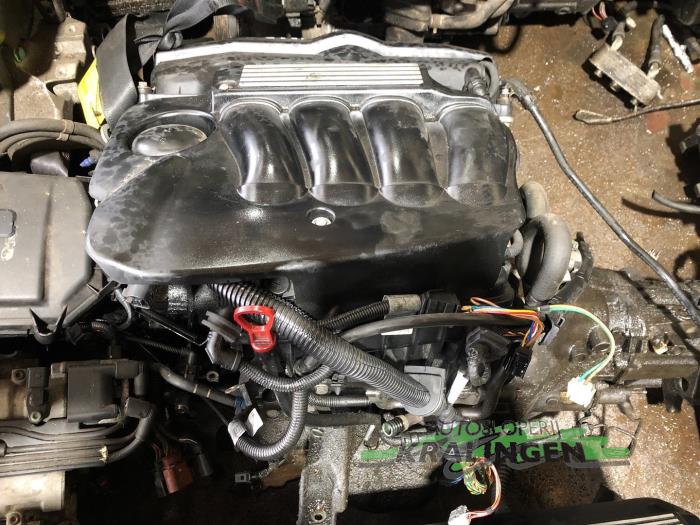Vital Considerations for Picking the Finest Engine for Your Needs
In the world of selecting the ideal engine to satisfy your demands, a number of crucial aspects demand careful factor to consider to make sure optimal efficiency and effectiveness. From the nuanced equilibrium between power and efficiency to the often-overlooked facets of maintenance and solution requirements, each element plays a critical duty in determining one of the most ideal engine for your particular requirements. As the intricacy of engine modern technologies continues to progress, critical the most fitting alternative necessitates a deep understanding of the interplay between different factors to consider. By exploring the elaborate internet of variables that underpin this decision-making process, a more clear course arises in the direction of selecting an engine that not only meets yet exceeds your expectations.
Power and Efficiency
When assessing engines for optimum efficiency, it is important to prioritize both power outcome and performance. Power result gauges the capacity of an engine to generate power, which directly influences its efficiency. A high power outcome is essential for demanding jobs such as high-speed requirements or durable applications. It makes certain that the engine can take care of the work properly and efficiently. Power alone is not sufficient; performance plays a substantial duty in identifying the overall efficiency of an engine. Effectiveness refers to just how well the engine converts gas right into functional power. A a lot more reliable engine will certainly provide far better gas mileage, lower emissions, and lowered operating prices. Striking the right balance between power result and efficiency is vital to choosing an engine that fulfills your specific requirements. When making this decision, it is vital to think about factors such as the intended use of the engine, ecological impact, and long-lasting cost effects. By very carefully assessing both power and effectiveness, you can choose an engine that supplies optimum efficiency and meets your demands effectively.
Gas Effectiveness and Economy
Gas effectiveness refers to the engine's capacity to transform gas into energy with very little waste, straight affecting operating expenses and environmental sustainability. Engines with greater fuel efficiency not just minimize fuel expenses yet additionally reduce carbon discharges, contributing to a greener procedure.
Compatibility and Application
Thinking about the gas efficiency and economic climate of an engine, the following essential element to address is its compatibility and application within details operational contexts. Compatibility refers to just how well the engine incorporates with the overall system or devices it powers.
In addition, the application of the engine is equally important. Various engines are made for specific functions, whether it be commercial equipment, aquatic vessels, automobiles, or power generators. Comprehending the designated application enables the option of an engine that can supply the required power outcome, torque, and operational attributes. A high-revving engine designed for performance automobiles would not be appropriate for durable best site building devices that needs high torque at low speeds.
Maintenance and Solution Needs
Maintenance and service demands play a critical function in guaranteeing the durability and ideal efficiency of an engine. Routine upkeep is necessary to protect against break downs, prolong the life-span of the engine, and maintain its efficiency. When selecting an engine, it is necessary to take into consideration the supplier's advised upkeep routine and the schedule of service facilities or certified technicians.
Elements such as the frequency of oil modifications, filter substitutes, and general examinations can significantly impact the engine's performance. Some engines may require more frequent servicing based on their design and usage, while others might have longer intervals between upkeep checks. It is vital to abide by these solution needs to stay clear of pricey fixings and unexpected downtime.

Cost and Spending Plan Considerations
Budget restraints commonly play a considerable role in the decision-making procedure when selecting an engine for a certain application. When considering the price and budget effects of choosing an engine, it is important to examine not only the preliminary purchase cost yet likewise the long-term costs associated with upkeep, gas usage, and possible upgrades or repairs. It is critical to strike a balance in between the ahead of time expense of the engine and its total lifecycle costs to make sure that the picked engine remains monetarily lasting throughout its operational life expectancy.
Elements such as fuel performance, durability, and dependability can directly affect the total price of ownership of an engine. While a more pricey engine may have greater ahead of time costs, it can potentially result in reduced maintenance and gas costs over time, thus using better worth in the long run.
Verdict

Fuel efficiency refers to the engine's capacity to convert fuel into energy with very little waste, straight affecting operating expenses and ecological sustainability.Aspects influencing fuel effectiveness consist of engine layout, combustion effectiveness, and total efficiency optimization. Additionally, choosing the proper gas kind and grade as recommended by the engine manufacturer can even more improve effectiveness and lengthen engine life-span.
Engines with good serviceability features and easily available components can lower upkeep prices and minimize the time the engine is out of operation - bmw 318ti. It is vital to strike an equilibrium in between the ahead of time price of the engine and its total lifecycle prices to ensure that the chosen engine remains financially sustainable throughout its operational life-span